Grab Drives E-commerce Adoption and Usage in Myanmar During COVID-19 Period, Empowers SMEs and Micro-Entrepreneurs
- Grab is supporting the livelihoods of merchant partners during the pandemic in line with the Myanmar Government’s COVID-19 Economic Relief Plan
- GrabFood has seen an approximate 470 percent increase in its average daily order volume between March and November 2020, while recording an 80 percent increase in the number of merchant partners using the platform during the same period
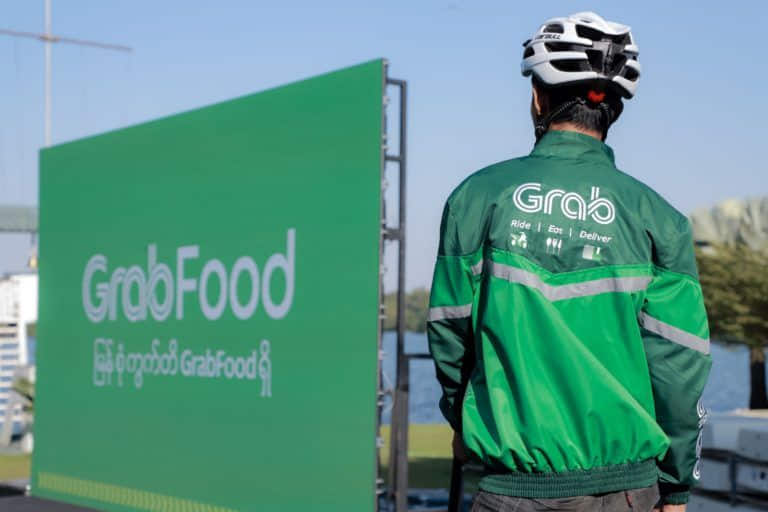
Yangon, Myanmar, 21 December 2020 – Grab, Southeast Asia’s leading everyday everything app, today released data on its work in driving e-commerce adoption and usage in Myanmar during the COVID-19 period in line with the Myanmar Government’s COVID-19 Economic Relief Plan (CERP). The data taken from March to November 2020 outlines the mobile technology company’s work in serving customers through its platform and how it is supporting the growing community of merchant-partners during the challenging pandemic period.
With stay-at-home orders and travel restrictions in place across much of the country, Grab is providing a safe and convenient platform for consumers to order food using GrabFood and shop for their daily essentials using GrabMart, while supporting the livelihoods of business owners as they weather the impact of COVID-19.
Between March and November 2020, Grab facilitated millions of transactions across its entire range of services. While this number was accelerated by consumer adoption of e-commerce during the pandemic, it reflects a broader growth in usage of the Grab App since 2017 when it was launched in Myanmar. On average, the number of monthly transactions facilitated by Grab grew by 25 percent in 2020 compared to 2019.
“Grab has been providing much-needed food and shopping delivery services to a growing number of customers in Myanmar during the pandemic. We have used our existing technologies, extensive delivery network, and operational footprint to quickly scale GrabFood and GrabMart across both Yangon and Mandalay, with our monthly active users growing in double digits year on year. This has enabled us to contribute toward the livelihoods of our merchant-partners by opening up digital revenue streams during a time where many consumers are unable to eat out or visit physical stores,” said Cindy Toh, Country Head, Grab Myanmar.
GrabFood Facilitates the Digitisation of F&B Businesses
Between March and November 2020, GrabFood’s daily order volume increased by an approximate 470 percent. During the same period, GrabFood saw an 80 percent increase in the number of merchant-partners using the platform to serve their customers, bringing the total number of licensed F&B establishments utilizing the service across Yangon and Mandalay to more than 1,500.
During the COVID-19 period, many consumers across Myanmar’s two largest cities have turned to e-commerce, with 75 percent of GrabFood’s total monthly users trying the service for the first time between March and November 2020.
In a win for Grab’s vision to become Myanmar’s every day everything app, 52 percent of Grab’s existing transport customers also tried GrabFood on a monthly basis between March and November 2020.
GrabMart Provides Vital Support to Retail Sector During the Pandemic
GrabMart started as an on-demand daily essentials delivery service to support consumers during the COVID-19 pandemic and has now partnered with more than 200 merchants in Yangon to supply a wide range of essentials such as groceries, packaged food, healthcare products, beauty products and gifts on-demand.
Uptake of the new service has been sharp with GrabMart’s daily average order volume increasing by 27 times from March to November 2020, with 70 percent of orders coming from first-time GrabMart shoppers.
GrabFlash Empowers Social Sellers and Small Businesses
Grab is extending its on-demand delivery service with the launch of GrabFlash (Beta) which allows customers to book Grab delivery-partners to pick up and send food packages from one location to another. The service is supporting social sellers and small businesses by offering a reliable, affordable on-demand delivery service while creating additional income opportunities for Grab delivery-partners.
Driving Financial Inclusion and the Earnings Potential of Grab Driver-Partners
Grab is also contributing to Myanmar’s push toward digital financial inclusion. To date, 20 percent of monthly active users have been making in-app transactions with their debit or credit card. Of all GrabFood orders made between June and November 2020, eight percent have been cashless with the customer choosing to pay with a debit or credit card linked to their Grab app. This trend is particularly prevalent with GrabMart users, where 17 percent of the service’s total payment volume during the same period was made using credit or debit cards.
In addition to supporting merchants, food vendors and consumers through e-commerce, Grab is also helping its driver-partners to go digital. Since 2017, Grab has assisted in opening CB Bank accounts for more than 20,000 of its driver-partners, introducing them to banking and other financial services for the very first time. This has enabled Grab driver-partners to use the Instant Cash-Out feature on a daily basis, usually at the end of their shift to transfer their day’s earnings into their mobile banking account and for withdrawal at an ATM.
“Myanmar is at a vital stage in its battle against COVID-19. We are proud that our platform and technology are helping to support businesses while aiding the rollout of the Government’s COVID-19 Economic Response Plan. Post-COVID-19, we expect demand for our delivery services to remain strong and will continue to expand our e-commerce services to support merchant-partners and consumer shopping needs in the new normal,” added Cindy Toh.
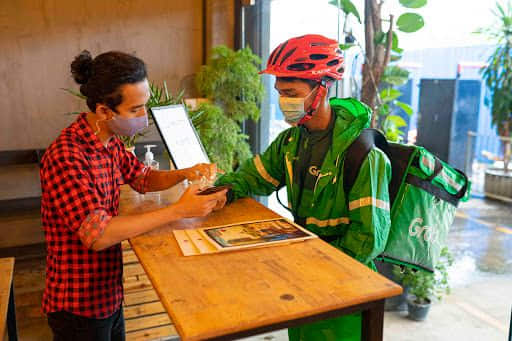
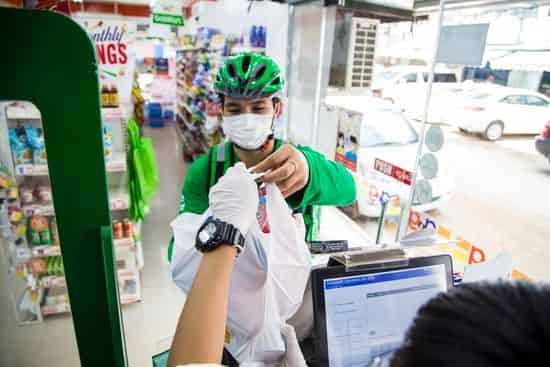
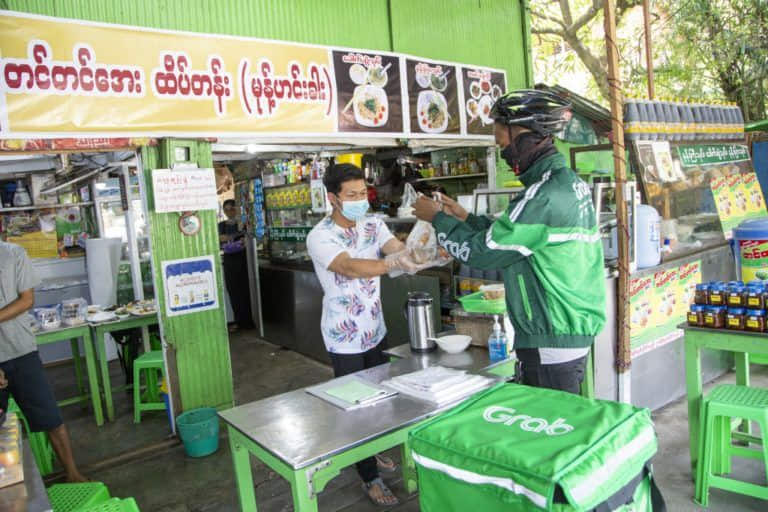
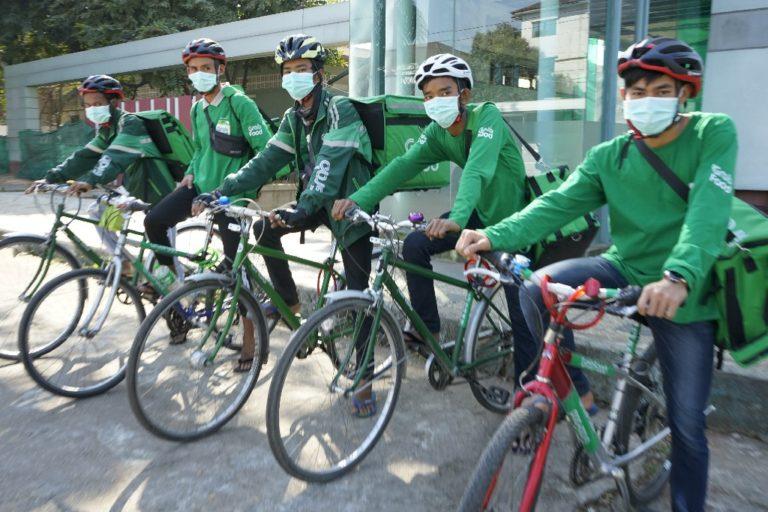
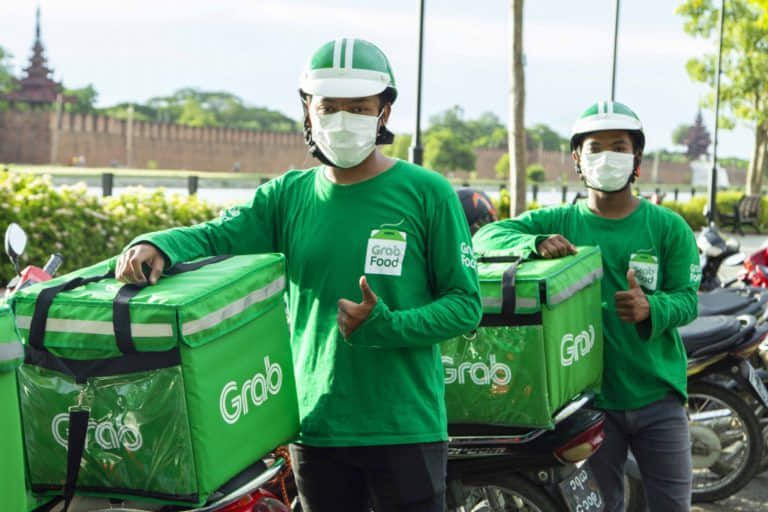
Forward Together
Grab Myanmar
9 A, Nat Mauk Yeik Tha Street,
Nat Mauk Ward,
Tarmwe Township,
Yangon, Myanmar